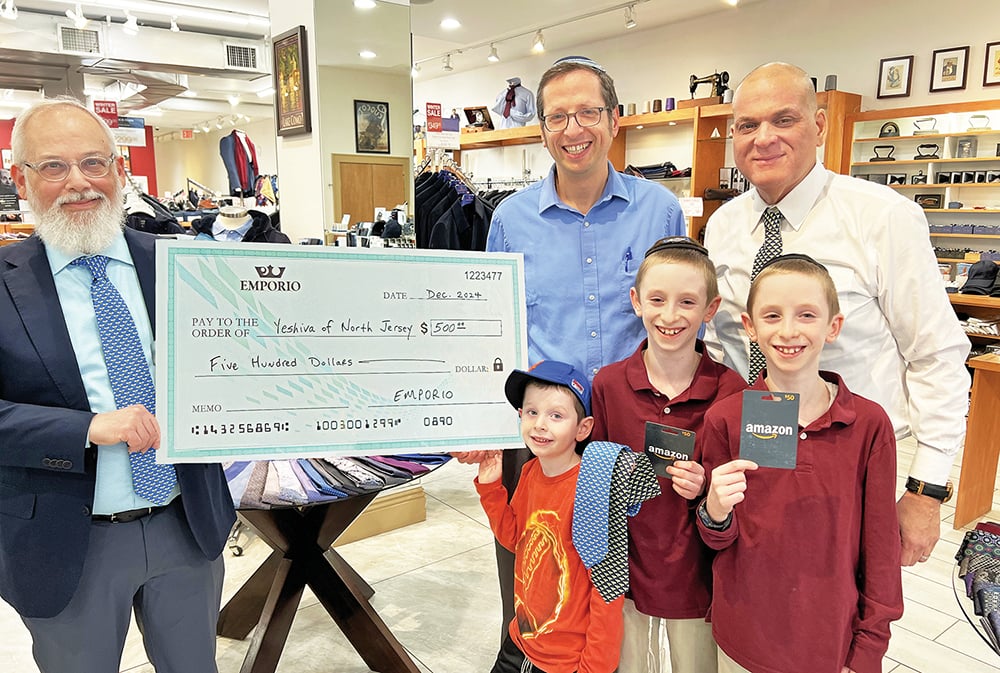


Editor’s note: Former Jewish Link contributor Norbert Strauss shares details of his visit to the United Nations General Assembly for the introduction and passage of a resolution condemning Holocaust denial. The vote came on January 20, the 80th anniversary of the Wansee Conference, when top Nazi officials discussed and coordinated the genocide of the Jewish people, establishing the system of Nazi death camps. The resolution was approved by consensus, with only Iran opposing.
Last week I received a phone call from my great-granddaughter Sarit Perl, telling me that she has a friend working for the Israeli delegation to the UN and that they were looking for Holocaust survivors to come to the UN on Thursday, January 20. Several other survivors also would be there, to be introduced during a resolution against Holocaust deniers. Since I am always available for anything that promotes the Holocaust memory, I agreed.
Two hours later I had an email from the delegation giving me information as to when and where I was supposed to be the next day. Since the UN has no public parking, I could not go with my car, and consequently the delegation arranged to have me picked up by Uber at 8 a.m. and would also take me home later in the day.
The only ID that I was asked to bring was a photo ID and proof of Covid vaccination.
I was met at the 42nd Street entrance to the UN by two young men from the delegation who gave me an ID to wear around my neck. They took me through security where they only wanted the photo ID and didn’t seem to be interested in my vaccinations.
We were taken to a room adjoining the General Assembly Hall where we were introduced to the ambassador to the UN, Gilad Erdan. After half an hour wait, we were guided into the General Assembly Hall for picture taking with the ambassador. Also present was Albert Bourla, the CEO of Pfizer, who is a child of Holocaust survivors. We were then taken to the office of the president of the assembly, who had requested to meet with us.
Back in the GA Hall I looked around and found that most countries were represented by only one individual, although there were at least 10 seats for each country. Not much later the program started with the president of the assembly reading some resolution that I could not hear since they had not yet supplied us with earphones.
By the time Gilad Erdan started making the presentation that would be voted on, we all had earphones. He spoke beautifully, including telling the story of a father and mother with eight children in Romania who were shipped to Auschwitz, from which only the father survived. Erdan then identified the man as his grandfather. During his speech he also referred to the fact that five Holocaust survivors were present in the hall, and he pointed to where we were sitting (in the plenum gallery). Hundreds of eyes representing the People of the World turned to look at us.
Other beautiful presentations were by the delegates of the United States, the United Kingdom and especially Antje Leendertse, the ambassador from Germany, who later joined us and stayed with us for over an hour.
Although originally only Israel was going to sponsor the resolution, Germany requested Israel for permission to join as “co-facilitator,” recognizing the symbolic importance of that action. Israel agreed to the request. The General Assembly was called into session just on that day because it was the 80th anniversary of the Wannsee Conference organized by the Nazis to find the Final Solution of the Jewish problem.
When it came to voting, the Resolution was approved by consensus, with only Iran opposing. Iran could not force a vote since it had not paid its UN membership dues. This was only the second time since Israel’s establishment that a measure that its delegation brought to the GA managed to pass.
The ambassador had an appointment with UN Secretary General Antonio Guterres (from Portugal), and we were asked if we wanted to join him after a wait of an hour. Two of us, including myself, agreed to wait.
The secretary’s office is in a different part of the building, and we were taken there under tight security, being handed from guard to guard, as we exited the elevator. Since I had met the secretary general in 2018 and had the honor of telling him my Holocaust story, which he wanted to hear in its entirety, I showed him pictures taken at the time to refresh his memory, and he claimed that he remembered me well. I also reminded him that in 2018 he had taught me a lesson, namely, never to call him “His Excellency,” which is the proper way of addressing the secretary general. He laughed when I related that to him.
That was the end of a very interesting day. We were then taken to the sidewalk outside the UN where an Uber was waiting to take me home.
Norbert Strauss is a Teaneck resident. He frequently speaks to groups to relay his family’s escape from Nazi Germany in 1941.













